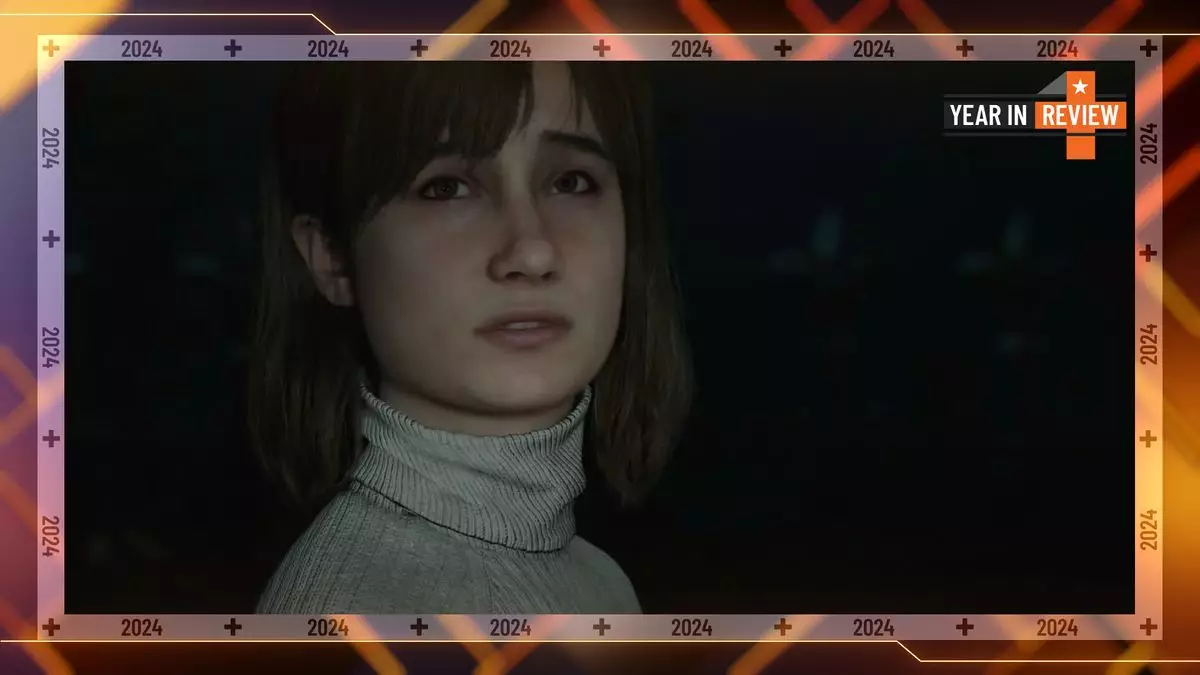Angela Orosco’s journey in the Silent Hill universe has resonated with gamers since her introduction in Konami’s original Silent Hill 2 in 2001. Portrayed initially as a deeply troubled teenager with a turbulent background, Angela’s character arc delves into the darker themes of trauma and survival, rendering her story both poignant and unsettling. Bloober Team’s 2024 remake not only updates the graphics and gameplay elements but also redefines the emotional weight of Angela’s experiences, providing players with a fresh perspective in today’s complex social landscape surrounding mental health and victimhood.
The transformation of Angela’s character has sparked debate among fandoms, particularly regarding her appearance and demeanor in the remake. Some fans criticize Bloober’s depiction as too softened and youthful, arguing that it undermines the harrowing truth of Angela’s experiences. However, the nuanced approach taken by the developers introduces a depth to her character that transcends superficial aesthetics. In a world where gaming spaces often grapple with misogynistic attitudes, Angela’s portrayal reflects a shift towards giving female characters the dignity and complexity they deserve. Rather than merely being a reflection of trauma illustrated through a “severe” appearance, Bloober’s Angela emerges as a more relatable figure—embodying the lasting scars of her past without resorting to caricature.
Angela’s narrative is interwoven with the horror of navigating personal trauma while existing in an environment that feels predatory and hostile. Her infamous encounter in front of the mirror, where she contemplates her mother and her own worth, serves as a crucial moment for players to understand the gravity of her plight. Through her haunting reflections expressed in the line, “It’s easier just to run… Besides, it’s what we deserve,” Angela reveals a complex psyche fraught with shame and desperation. The original voice acting, while iconic, often rendered her character into an ambiguous, almost cartoonish figure. In contrast, the voice actress Gianna Kiehl’s performance in the remake imbues Angela with a palpable anger and sadness, making her struggles more accessible and resonant.
The encounter with Abstract Daddy is pivotal in illustrating Angela’s trauma but has been criticized in the past for its somewhat detached representation of sexual assault. By upgrading the emotional resonance and context behind this confrontation, the remake elevates the horror to a profoundly personal level. Bloober’s execution allows players to experience the nauseating terror of the battle not just as a game mechanic but as a grim reality of Angela’s existence. This moment captures the systemic oppression and abuse she suffers, reinforcing the integral relationship between gameplay and narrative depth.
The experience of playing Bloober’s Silent Hill 2 has a way of drawing players into Angela’s emotional world, often evoking reflections on their own struggles. The attempted connection, however fleeting, can lead to deep identification with her character. Players might find themselves wrestling with their ghosts, confronting feelings of shame and loneliness that resonate through Angela’s story. For someone who has faced similar issues, there is a profound impact when Angela states those painfully pivotal words, “Don’t pity me. I’m not worth it.” This encapsulation of internalized suffering reveals how silent battles can become heavy burdens—burdens that often remain unacknowledged in real life.
The 2024 remake of Silent Hill 2 breathes new life into Angela Orosco’s narrative, offering players a chance to encounter her pain and struggles through a contemporary lens. By unpacking the layers of trauma and providing a dignified portrayal, Bloober allows players to engage with issues of victimhood, agency, and self-worth in ways that resonate deeply. Ultimately, the emotional depth found in Angela’s story reaffirms how important it is to represent female characters authentically, without the constraints of outdated archetypes or sexist norms. This reclamation sheds light on the complexity of suffering, revealing that those who endure trauma deserve not only understanding but also a chance to heal, navigate their narratives, and reclaim their voices. As Angela walks through the trials set before her with quiet resolve, she embodies the message that strength lies in vulnerability, signifying a powerful evolution in video game storytelling.


Leave a Reply